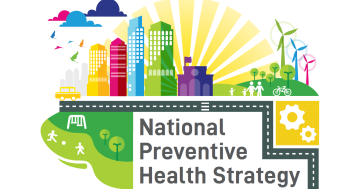 Parents of teens and young adults are being warned that the growing use of e-cigarettes in Australia poses a serious public health risk and threatens to introduce a new generation to smoking.
Parents of teens and young adults are being warned that the growing use of e-cigarettes in Australia poses a serious public health risk and threatens to introduce a new generation to smoking.
As part of its program of work on the health impacts of e-cigarettes, commissioned by the Commonwealth Department of Health, the Australian National University (ANU) conducted a major review into the global evidence on the health effects of nicotine and non-nicotine e-cigarette use.
Lead Author with ANU’s National Centre for Epidemiology and Population Health, Emily Banks said researchers found the use of nicotine e-cigarettes (also known as vapes) increased the risk of adverse health outcomes, particularly in youth, including taking up smoking, addiction, poisoning, seizures, trauma, burns and lung injury.
“The evidence shows e-cigarettes carry significant harms,” Professor Banks said.
“Nicotine is a key ingredient and one of the most addictive substances known,” she said.
“Vaping is causing addiction in a new generation of users.”
Professor Banks said young non-smokers who vape were around three times more likely to take up smoking than non-vapers, while nicotine use in children and adolescents could lead to lifelong addiction issues as well as difficulties in concentration and learning.
She said the report found early warning signs of adverse effects of e-cigarettes on cardiovascular health markers, including blood pressure, heart rate, and lung functioning.
“The evidence is there for some of the risks but for most major health outcomes, like cancer, cardiovascular disease and mental illness, we don’t know what the impacts of e-cigarettes are,” she said.
“Their safety for these outcomes hasn’t been established,”
Professor Banks said there were myths around vaping which targeted young people, including that vapes wouldn’t be widely available if they were dangerous and that “it’s just water vapour”.
“Vapes deliver hundreds of chemicals – some of them known to be toxic and many others with unknown effects,” she said.
“Our young people have been through a lot and they deserve the best future possible.
“The evidence is in that avoiding e-cigarettes should be part of that.”
To top off the bad news on vapes, Professor Banks said the report found limited evidence that nicotine e-cigarettes were effective to help people quit smoking.
ANU’s 360-page Electronic cigarettes and health outcomes: systematic review of global evidence report can be accessed at this PS News link.











